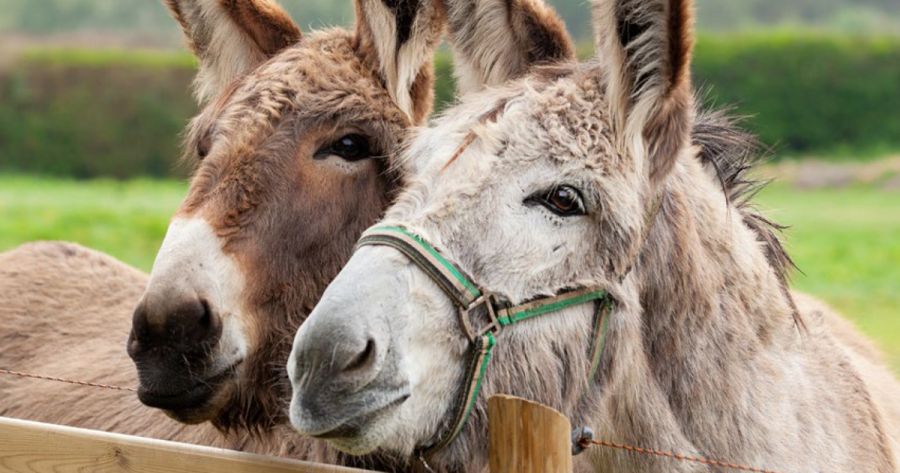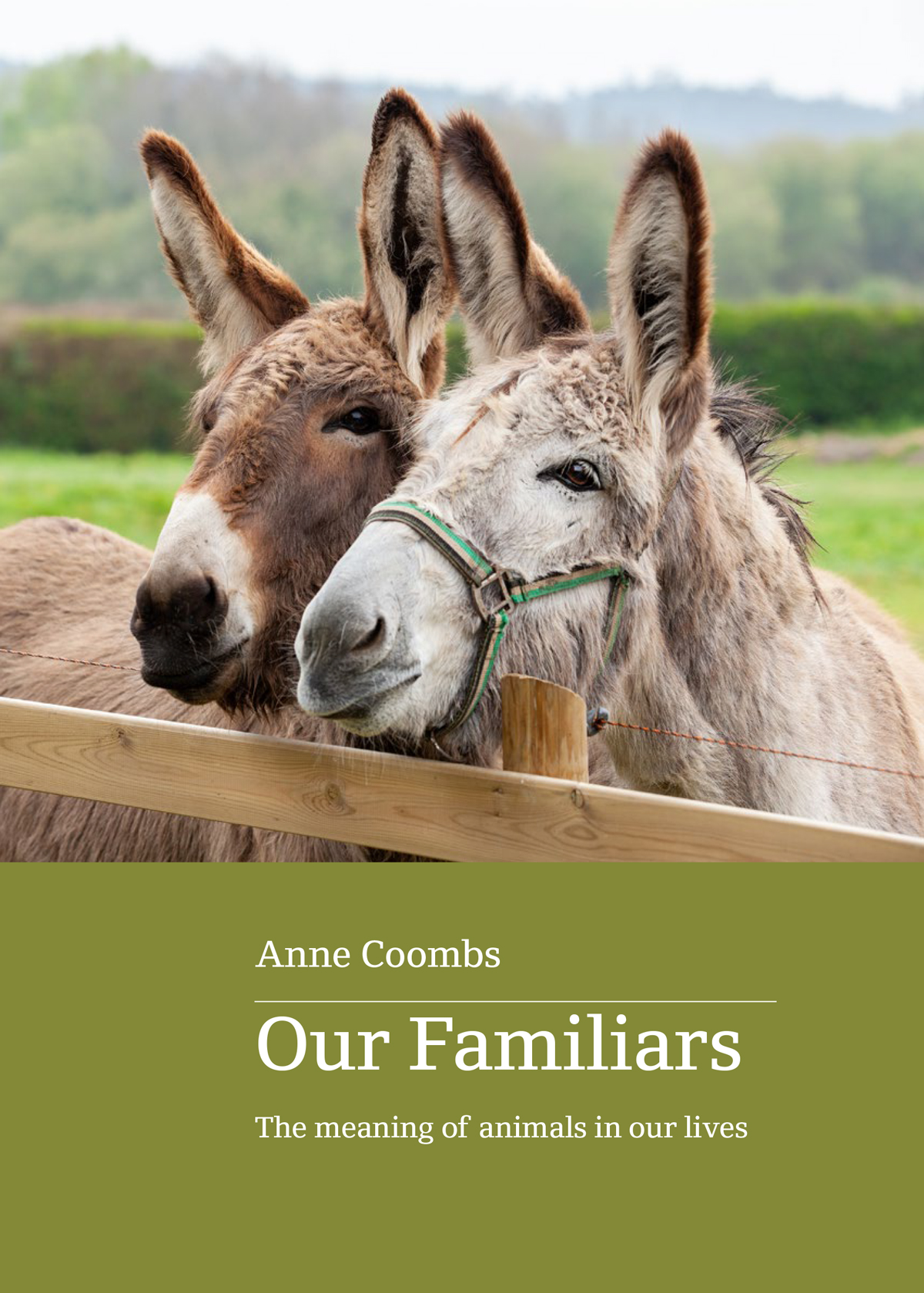
- Free Article: No
- Contents Category: Animals
- Review Article: Yes
- Article Title: Our Familiars
- Article Subtitle: The meaning of animals in our lives
- Online Only: No
- Custom Highlight Text:
The unbelievable lacework of it all – the patterns and linkages, the flickerings of knowledge and mystery, the astonishing shapes – is what Anne Coombs’s Our Familiars: The meaning of animals in our lives explores. This is a family book; specifically, a multi-species family book. Intimacies made between bodies is the soil in which the work is grown. And it comes from a writer who spent a lifetime thinking about, writing for, and working towards companionship, co-operation, and the safety of others. It is a posthumous publication too; a work fed and raised by Coombs, but finished, edited, and carried into the world by Susan Varga, Anne’s partner of thirty-three years, and close friend Joyce Morgan. Coombs died in December 2021, not long after the Black Summer fires and the Covid-19 pandemic – a time when all our interdependencies were raging (as they continue to).
- Book 1 Title: Our Familiars
- Book 1 Subtitle: The meaning of animals in our lives
- Book 1 Biblio: Upswell Publishing, $29.99 pb, 226 pp
- Book 1 Cover Small (400 x 600):

- Book 1 Cover (800 x 1200):

- Book 1 Readings Link: https://www.readings.com.au/product/9780645874594/our-familiars--anne-coombs--2024--9780645874594#rac:jokjjzr6ly9m
I began reading in bed before sun-up, squinting through the glow of my phone torch. I did not want to approach this book, pencil in hand, as if dutifully noting down the ingredients of a medicinal tea. I wanted to read as a loose animal body. I’d been avoiding animal books for a year, heart sick at the cruelty humanity has arrived at, in which this world, so full of wild wondrous majesty, is met with murderous stupidity and, perhaps more despairingly, murderous intelligence. Our Familiars is marbled with it all. But do not be put off. Coombs tells heart-sickening stories of vast and various multi-species cruelties by sticking to the facts. The facts are enough. Nothing else is needed. The least we can do is listen.
The book does not follow a typical structure of starting in ignorance and ending in illumination. There is no arc or arrow to the structure. The book moves as Coombs is openly nudged into bewilderment, questions, by the ethical and existential pressures exerted on her in paddocks, barns, and living rooms. ‘What is “natural” to animals?’ ‘[W]hy should it be a radical idea that they also learn about us by observing us?’ ‘[H]ow does one know for sure that the chicken one is eating really did have a good life?’ ‘Where could all their [ethologists, zoologists, neuroscientists, philosophers] research take them if they refused to consider the possibility that animals think?’
I do not mean bewilderment as in getting lost, but an intentional kind of disorientation that comes when one refuses to live by well-thumbed maps. For the poet Fanny Howe, bewilderment can be about fostering an altered connection to everyday life. So too for Coombs.
Coombs traces a loose history of moral philosophy and ethology as it has been applied to other species from the mid-1970s. In Coombs’s hands, scientific experimentation is metabolised by direct experiences of living. When it comes to horses, for example, Coombs writes, ‘not a great deal is really known – as in scientifically proven’. Experiments on horses, she says, have been fairly basic. Some have proven that horses see a smaller range of colours than humans, while others attempt to show that horses cannot hold information in their brains.
Coombs does not, as I imagine is the case for many horse people out there, need a series of abstract experiments involving buckets to see that horses do, indeed, recall frightening experiences, kindness, or lessons they have been taught months or years ago. Instead of experiments, Coombs asks, why shouldn’t humans spend time seriously observing the world around us? And why shouldn’t humans remain open to the possibility of experiencing wonder, surprise, and confusion when living alongside other species? ‘There are so many mysteries in the minds and bodies of non-human animals and we are only beginning to get an inkling of them.’
Humanity’s interest in other species is and has been deadly. Coombs writes of the many experiments performed on parrots, mice, rats, dogs, horses, donkeys, apes, and dolphins. Such testing is done to prove or disprove the existence of some vital part of them, their capacities: empathy, intuition, emotion, reciprocal altruism, a soul. Coombs asks why simple, self-evident ideas about animal agency, memory, or forethought appear radical to anyone. And why are there so many closed minds when it comes to the lives of other animals? Coombs pushes her reader towards the lives and cultures of all other species, but especially towards those she loves and with whom she shares her life: horses, cats, dogs, goats, and donkeys. Through domestication, Coombs notes, each of these species has learnt to read human cues, to ‘second-guess us, to know what we are thinking’. Coombs can see the intelligence, adaptation, and intuition it takes for any goat to survive this human-shaped world.
Coombs never presumes to know what other animals are thinking. And so, Our Familiars offers instruction in certain forms of cross-species empathy and respect for the opacity of others. While hauling philosophy around farm and house, Coombs notes the significance of each small moment, the comedy, solace, tragedy, and companionship.
In this way, Our Familiars joins a small but growing ‘animal turn’ in memoir that includes Eileen Myles’s Afterglow: A dog memoir, Mary Gaitskill’s Lost Cat, Suniti Namjoshi’s Suki, and Helen McDonald’s H is for Hawk. With her close and rigorous exploration of philosophy and science, Our Familiars also resonates with Vinciane Despret’s ground-breaking work of social science, What Would Animals Say If We Asked the Right Questions?
My advice is this: bring your openness to this book. If you don’t, you might be skewered by what Coombs asks you to consider. Which is what, exactly? This proposition from Judith Butler says it all: ‘Let’s face it. We’re undone by each other. If we’re not, we’re missing something’.


Comments powered by CComment